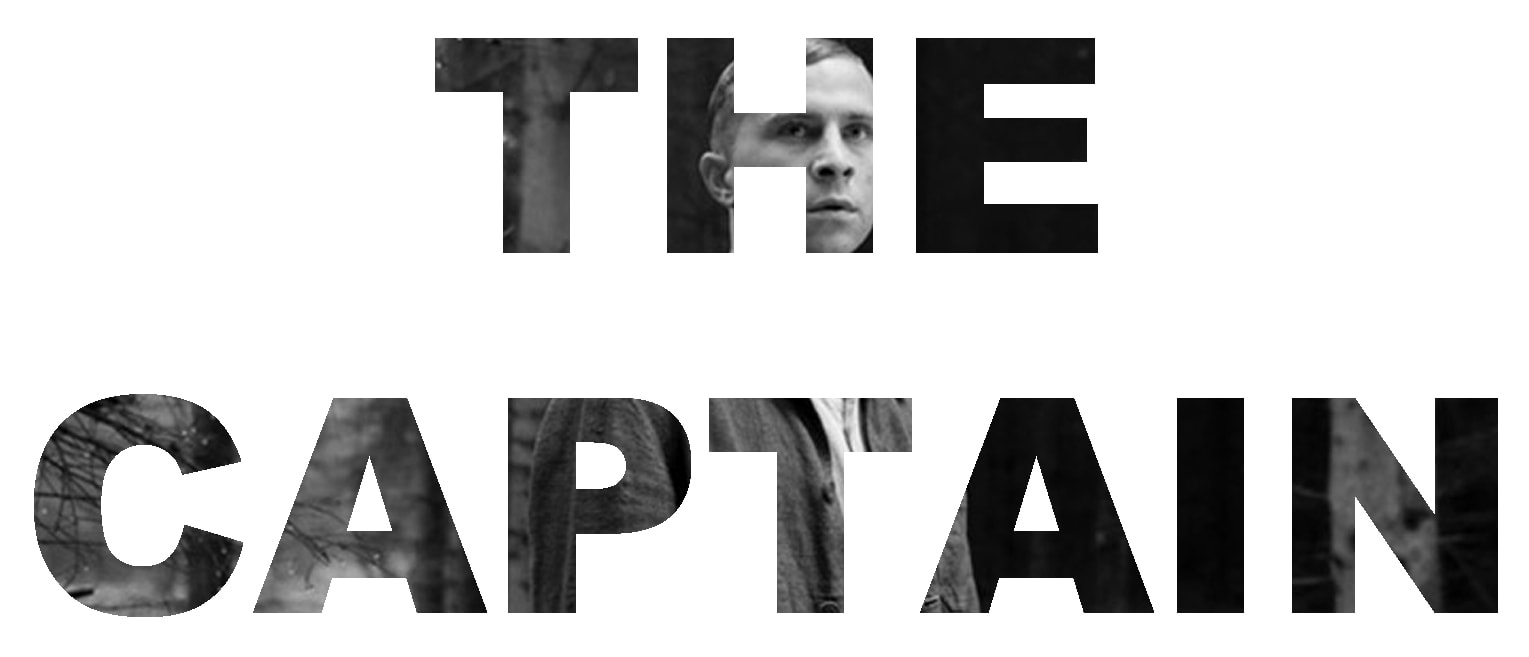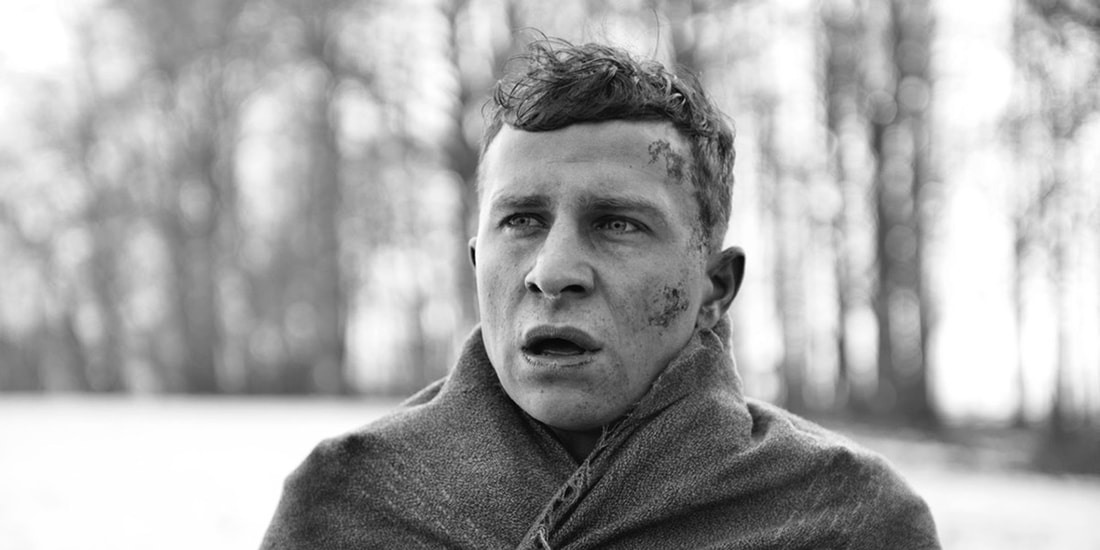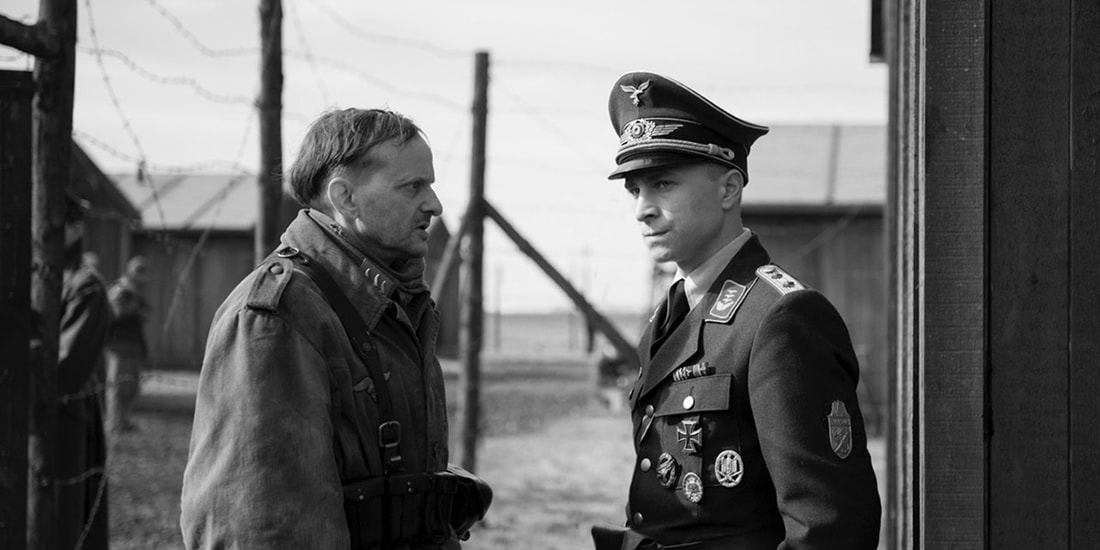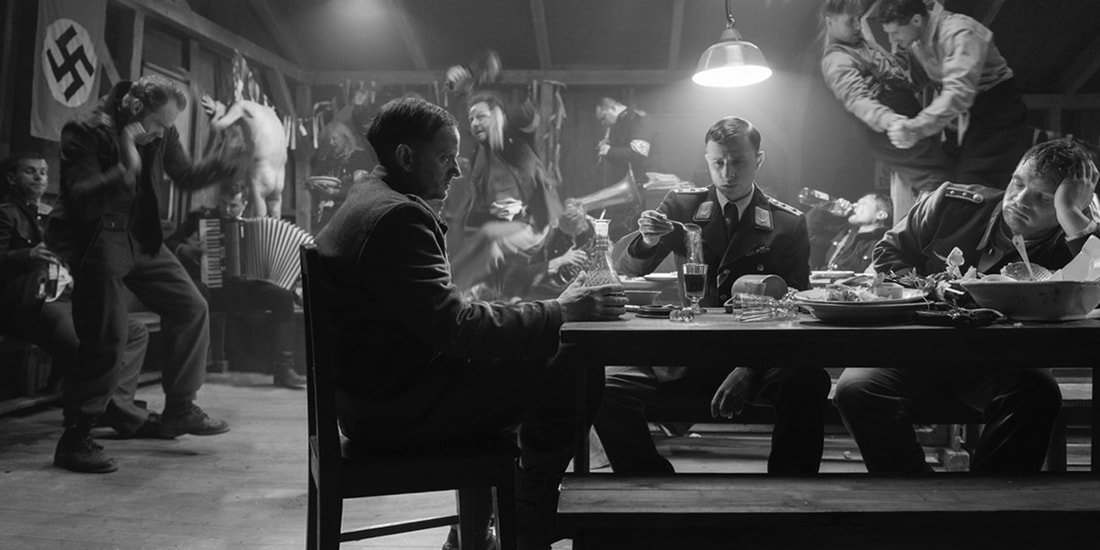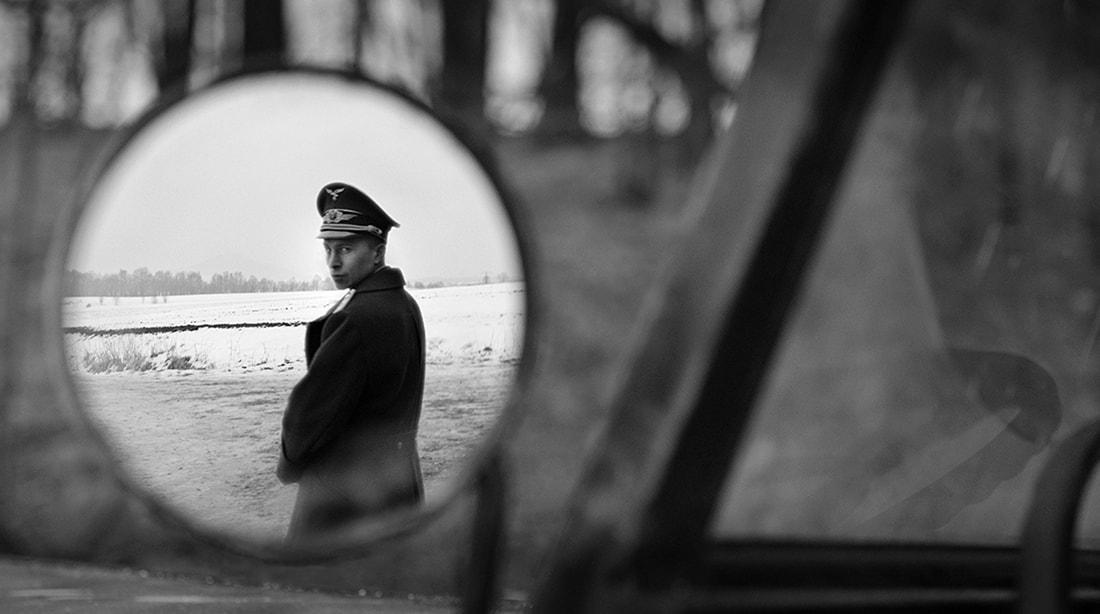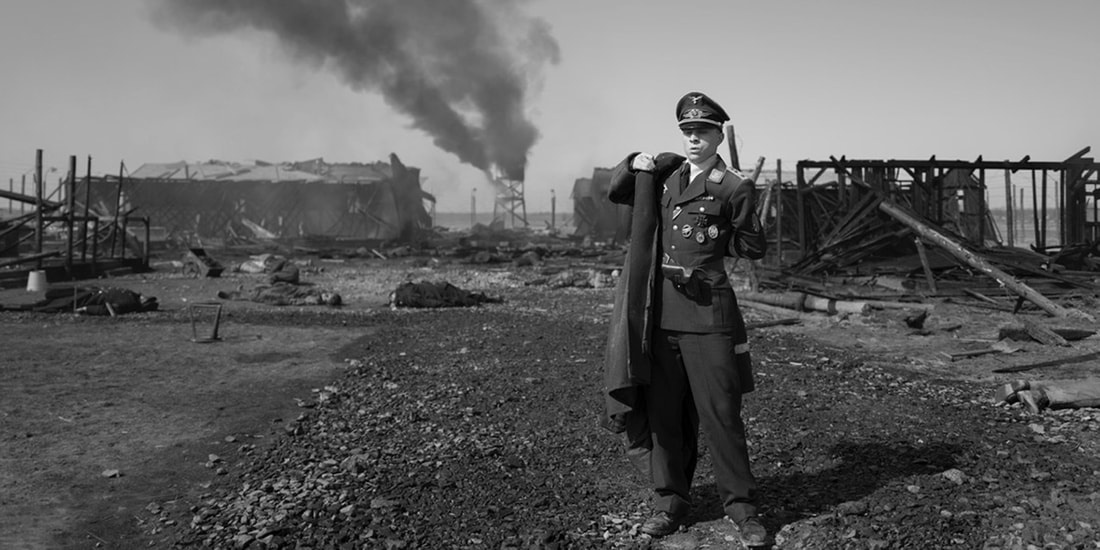|
★★★★★
29 December 2017
A movie review of THE CAPTAIN. |
“Where is that little piggy?” Junker (Alexander Fehling)
Three years in a row Germany has delivered one of the best films of the year. After VICTORIA (2015) and TONI ERDMANN (2016), THE CAPTAIN takes its place. The three movies could not be more different.
Visceral, brutal, allegorical, THE CAPTAIN is expertly crafted. A Nazi deserter kills dozens of other Nazis to survive. 1945, two weeks before the end of the Second World War, the audience is plunged straight into a chase across the countryside. A Nazi squad is hunting Willi Herold (Max Hubacher), a young German soldier, for desertion. Setting a template for the 118 minute runtime, Herold evades capture via a mixture of guile and luck (reminding of Austrian crime flick THE ROBBER from 2010).
Three years in a row Germany has delivered one of the best films of the year. After VICTORIA (2015) and TONI ERDMANN (2016), THE CAPTAIN takes its place. The three movies could not be more different.
Visceral, brutal, allegorical, THE CAPTAIN is expertly crafted. A Nazi deserter kills dozens of other Nazis to survive. 1945, two weeks before the end of the Second World War, the audience is plunged straight into a chase across the countryside. A Nazi squad is hunting Willi Herold (Max Hubacher), a young German soldier, for desertion. Setting a template for the 118 minute runtime, Herold evades capture via a mixture of guile and luck (reminding of Austrian crime flick THE ROBBER from 2010).
THE CAPTAIN is a massive step up for director Robert Schwentke. Some slick, stylish camerawork not present earlier, and the film works in monochrome. THE CAPTAIN eclipses the likes of FLIGHTPLAN and RED, and leaves in the dust the rest of Schwentke’s lacklustre Hollywood oeuvre, from THE TIME TRAVELLER’S WIFE to INSURGENT.
The Allies are routing the Nazi forces. Some of the latter’s soldiers are being used to round up their own absconders. Much later, we witness a camp for them. Nazis in a Nazi camp. The audience watches as they are brutalised by Herold in an attempt to deflect scrutiny of his real identity: A low ranked deserter. After the initial escape, Herold stumbles across an abandoned captain’s uniform, which he dons. The façade quickly imbues Herold with the confidence of his new status. Like a method actor, Herold flexes his performance muscles. One wonders if he is a natural, or merely in instinctual survival mode?
Where can the lead flee? Germany is being surrounded. One surmises his only purpose is to stay alive until he can shed the disguise. But wherever he goes, carnage ensues. The captain’s uniform is double-edged: While he can evade the lower or equal in the hierarchy, he also might be discovered by his own side or if captured by the Allies be prosecuted as a ranking Nazi.
The audience does not know Herold’s past. Was he conscripted into the army? Or was he a vociferous supporter of Hitler’s regime? Is he a war criminal? Or is he an innocent (à la LAND OF MINE)? By not being aware of Herold’s history, the audience cannot completely get behind his plight. Uneasiness grows at Herold’s utter disregard for human life beyond his own. Interestingly all these other lives are German, and therefore we are unaware of their fascistic culpability.
Doing awful things to awful people. When it comes to Nazis many right-thinking people might find it excusable, but the film asks when is it not. The closing credits goes boldly meta. Think LOOK WHO’S BACK? (2015). THE CAPTAIN is especially relevant because of fascism rearing its head again around the world. The narrative perhaps poses the questions: What should the punishments be for these new right wing architects? What form should their reparations take? How much should a tolerant population demand in compensation?
Using these Google Adsense links help us keep Filmaluation free for all film and arts lovers.

